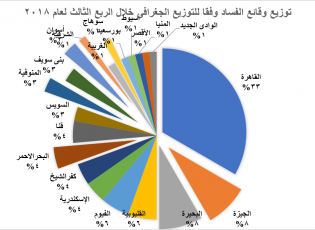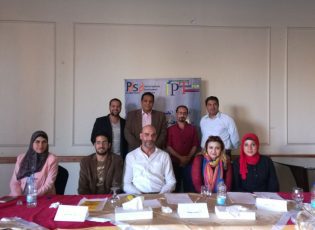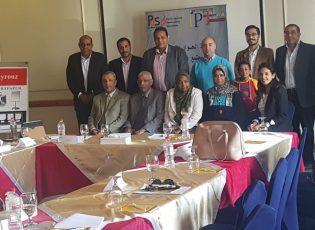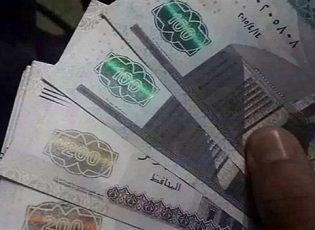Report: Iman Al-Najjar
The incident of bribery of the Minister of Health’s advisor for the Secretariat of Specialized Medical Centers was not the first in the corridors of the ministry, which witnessed similar incidents in recent years.
The case in which the minister’s advisor was caught a few days ago in the act of taking a bribe worth 4.5 million pounds brought back to mind the corruption of the "blood bags" that occupied public opinion during 2007, and if these two incidents were the most clear, but the matter is according to the reports of the Administrative Control Authority. He predicts the emergence of other incidents on the surface in the coming period, and it is interesting that Dr. Ahmed Emad, Minister of Health, watches these facts from the seats of spectators.
The incidents of corruption in the ministry are related to the “awarding” of supplies, tenders, direct attribution, and the violations that punish them. This type is most common with “health” due to the nature of the ministry’s work and reliance on supplies whether for equipment or medicines or contracts with radiology and analysis centers and hospitals. Incidents of profiteering and bribery by officials, as well as administrative corruption, are also spread in the ministry, and one of its forms is the minister granting great powers to his advisers.
The minister is questionable
In the case under investigation, the advisor to the Minister of Health is not a member of the ministry, but he is one of the advisers who were brought in by the Minister of Health, Dr. Ahmed Emad, who created positions for them within the ministry, and delegated to him many powers, which made him request a bribe from a private company with an amount of 4 million pounds in return for assigning work Supplying, installing and operating 12 marrow transplantation rooms at Nasser Institute Hospital, affiliated to the Specialized Medical Centers Secretariat, with a value of EGP 28.567 million. The officers of the Administrative Control Authority seized the checks issued at the amount of 2 million pounds as the bribe, as well as the original assignment order at the workplace of the minister’s advisor at the ministry’s office.
In turn, Minister Dr. Ahmed Emad El Din Rady tried to distance himself from suspicions, and said that he “stands firmly against all forms of corruption, since he assumed the position of Minister of Health and Population, and that he does not cover up a corrupt person, even if he is one of the leaders of the ministry and whatever his position is.” He considered the incident as one of the corruption episodes that were eliminated in cooperation with the state’s supervisory agencies. And he issued a decision to form a committee to review all contracts and tenders that took place during the past 9 months to ensure that there were no quasi-violations in them, and related to the Nasser Institute for Research and Treatment, Cairo Fatimid Hospital, Sheikh Zayed Specialist Hospital, and Tanta Cancer Center belonging to the Secretariat of Specialized Medical Centers, the incident is not true. Corruption is the first in the Ministry of Health, albeit the largest.
Corruption in the Ministry of Health has a history, but the facts that emerged during the era of the current minister were significant. Last August, the death of the children of Beni Suef occurred, and it was a vivid example of corruption that claimed the lives of children. The Administrative Prosecution Authority referred nine of the leaders of the Directorate of Health Affairs in Beni Suef and the Ministry of Health for trial Urgent results as a result of giving them a dehydration solution that does not meet the specifications and is not suitable for use and circulation and was passed by the competent control committees for the benefit of the United Company and the presence of collusion of officials in relation to matters of supply in violation of the legal conditions.
The investigations revealed that one of the pharmaceutical companies for the production of the batch under investigation had the same previous batch number of the same product to evade analyzing samples from them and subject them to technical examination, which led to the production of a product that does not conform to specifications and is not suitable for use and as a result of that the death of children and endangering the lives of others To risk.
594 incidents of neglect and corruption
Another type of corruption that directly affects patients' lives was revealed by a report issued by the Administrative Prosecution Authority regarding violations of the health sector during 2014. The report included 594 cases that dealt with incidents of medical negligence in the government sector, and the forms of medical negligence varied according to the investigations, including the delay in providing medical intervention, due to several reasons, including: lack of presence in hospitals or health units during shift work, delay in providing medical care and intervention Medical intervention without justification, medical intervention contrary to medical principles and norms, negligence in providing medical care and follow-up after conducting medical intervention, refusal to receive emergency sick cases by private hospitals in violation of the Prime Minister’s decision to receive these cases for a period of 48 hours.
The report issued by the Administrative Prosecution Authority said: There is an explicit violation of the text of Article 18 of the current constitution of Egypt, and you may notice this phenomenon growing at the beginning of the current year in a way that threatens to confront it with utmost determination because it is a flagrant violation of the citizen’s constitutional right, and the low level of public hygiene and health safety in hospitals The public has become a threat to the health and safety of patients, complete chaos that included the process of issuing treatment decisions at the expense of the state, violations related to tampering with the granting of sick leave to beneficiaries of health insurance unlawfully, the deterioration of the security situation of some hospitals, which allowed the patients' families to attack the doctors and nursing staff in the hospital, which is What sometimes resulted in their refusal to provide medical services for fear of their lives, the refusal of the physicians and nursing staff to take over work at the assigning bodies.
Corruption file in front of the president
In a memo sent by Dr. Ahmed Hussein, a member of the Doctors Syndicate to President Abdel Fattah El-Sisi, in which he presented some aspects of corruption, including the direct order attribution and the images of corruption that it contains. The memorandum also included what was related to the Ministry of Health office, including sending a fleet of cars to the Ministry’s leaders that includes «two BMW cars, 24 Verna cars, 3 Double cabin cars, 6 microbuses, with a total amount estimated at 4 million 638,930 pounds.
The Partners for Transparency Foundation, which monitors incidents of corruption in various sectors, also reported some corruption reports, including about 88 corruption incidents in the period from July 2015 until the end of April 2016 related to the health sector.
According to the reports of the Administrative Control Authority, the incident of the advisor to the Minister of Health is not the first, as several incidents have been monitored during the last two years, including: A corruption case within the Health Insurance Authority related to the facilitation of a number of the Authority’s employees the takeover of a company responsible for managing a number of radiology and analysis centers nationwide. By obtaining sums of money from the Insurance Authority without providing a service in exchange for financial commissions, as the value of what was disclosed was only approximately 4 million pounds. Administrative control investigations came to reveal irregularities and courtesy of officials in the health insurance branches in the governorates by conducting transferring cases to a famous radiology center without the need for it, and at prices exceeding the contracted prices, which led to the center obtaining unjust sums of money. Administrative control investigations identified a number of branches of the Health Insurance Authority in three governorates.
Last July, the Authority (SAA) caught the director of the Legal Affairs Department at the Central Administration for Pharmacy Affairs of the Ministry of Health while he was receiving bribe sums from (O.A.) the owner of a pharmacy in Farshout Center in Qena Governorate for his issuance of a fatwa in favor of The last in the dispute between him and others over one of the pharmacies in the center, with the mediation of a citizen named (M.A.M.). During last May, coordination was made with the Minister of Health and informed of the violations attributed to a number of officials in charge of the Integrated Program on Perinatal and Child Nutrition funded by UNICEF in the Nag Hammadi Health Department of the Qena Health Directorate, for their misappropriation of the sums allocated to the nutrition of women and children during and after childbirth.
Manipulating people's health
Last August, the authority’s reports revealed aspects of manipulation and job deviation that negatively affect citizens. Authority officials were able to control each of (IT) an agricultural engineer in the Nutrition Department of the Directorate of Health Affairs in Aswan Governorate who is responsible for following up on food supplies for hospitals affiliated with the Ministry of Health in the governorate. A.M.) the owner of a public supply company, during the first of the second, the amount of 105 thousand pounds as a bribe for his condoning the violations that marred the supply of some food items to the hospitals belonging to the governorate that do not comply with the specifications contained in the conditions booklet. The investigations confirmed the validity of the incident and the accused were caught and presented The Public Prosecution decided to detain them pending investigations.
Blood bags ... the biggest issue
Perhaps the previous facts seem small, but the largest case in the history of the ministry’s recent corruption took place in 2007, which was known as the "case of rotten blood bags" in which both the Minister of Health at the time and the Heidelina Public Opinion Company in Egypt were accused. Public employees in the Ministry were accused and tried to profit unlawfully and awarding the tender to supply blood near the city, claiming that it conformed to the specifications contrary to the truth, and interests were intertwined due to the presence of its parties in the People's Assembly at the time, and their assumption of positions in the government or their possession of companies that deal with the state. At the time, the Attorney General referred both the head of the Heidelina Company, a member of the People's Assembly for the National Party, Hany Sorour, and the Director of the General Administration of Blood Affairs at the Ministry of Health, Helmy Salah Al-Dy, to the Criminal Court.
The investigations proved that the use of blood bags of the Heidelina company leads to the infection of patients with bacterial poisoning that may lead to the occurrence of death, and the presence of anti-clotting fluid leaked from the bags and it was found that there are six other violations, which makes the bags invalid. The case included awarding a tender to supply bags The blood on the company was in violation of the terms of the tender.
In 2008, the most obvious issue was corruption in the treatment system at the expense of the state, the waste of millions of pounds, whether by overestimating the sums of money decided by the Ministry to treat some patients in large private and investment hospitals or issuing treatment decisions for wealthy patients who do not deserve treatment at the expense of the state and hesitation Much about the mafia and treatment brokers at state expense.
Legal loopholes that facilitate fraud
Regarding these various facts, Dr. Walaa Jad Al-Karim, President of Partners for Transparency, said: We started in July 2015 the inauguration of an observatory to track corruption incidents that are uncovered through the media, regulatory agencies and relevant investigation authorities. About 88 incidents were monitored in The period from July 2015 until the end of April 2016 in the health sector, and the Ministry of Health was present in all reports, and even topped the introduction in some reports, and unfortunately corruption in the health sector, even if its size is small, but its impact is greater because it may end threatening the lives of patients, as happened, for example. In the death of the children of Beni Suef after being treated with improper treatment solutions for dehydration, or cases of seizure of spoiled food, its specific weight is large.
Abdul Karim went on to say: “There are many legal outlets and loopholes that allow the corrupt to profit from the treatment story at the expense of the state, and we all know that it was for a long time a hotbed of corruption, whether in the value of treatment decisions or in their issuance to specific hospitals and other matters, or their issuance to unworthy persons, too. The issue of supplying medical supplies to hospitals, and the tenders for equipment and medicines are all matters in which there are loopholes for manipulation, just as the Ministry of Health is always a technocrat who handles it, so we find an academic professor who suddenly finds himself at the mercy of a corruption system that is unable to it, and as a result he either falls victim to corruption or participates In it, or he cannot control it, ”considering that“ the supervisory apparatus is weak and the supervisory apparatus that works is administrative oversight only. As for the rest of the agencies, you are in secret, not just because the laws are not appropriate, but because there are insufficient capabilities and real independence. ”
Corruption, apparent and hidden!
For his part, Dr. Khaled Samir, a member of the Doctors Syndicate, said that the incident of bribery of the Assistant Minister of Health is the largest incident during the current period, but it also reminds us of the incident of blood bag corruption and if these two incidents are the most obvious and that have appeared on the scene, but the reality warns of other incidents if Emphasis has been placed on confronting corruption, as from the successive facts it appears that corruption in the Ministry of Health is both administrative and financial.
He added: Administrative corruption also leads to financial corruption and waste of public money, and among the forms of administrative corruption is the mediation and favoritism in the distribution of doctors and nursing, and the lack of a clear plan and strategy to link health services with the number of the population, for example, we find a health unit with 50 nurses and major hospitals suffering from a lack of nursing, the same The case with doctors, also the Minister of Health brought in a number of advisors and assistants and entrusts them with powers, and this is what many ministers do and it happens abroad as well, but the decree is the choice. Unfortunately, their choice in Egypt is always based on trust, not experience and competence, and it follows that the Minister of Health bears responsibility His advisors are an incident like the existence of a suspicion of corruption that if it occurred in a developed country, it would force the minister to resign and withdraw confidence from him, especially since he was the one who chose them and they were not from the ministry’s sons and employees. A member of the Medical Council drew attention to another type of corruption represented in pretending to open hospitals and institutions that are already established, such as the opening of the marrow transplantation unit at the Nasser Institute, which is an existing unit that has been operating for many years. A few years, and unfortunately many developments are in marble and ceramics, and Beni Suef General Hospital, about 300 million pounds were spent to develop it and it was better to direct it to build another hospital, especially as it is on the same foundations. The development of hospitals without adequate technical and engineering studies, in addition to attribution by direct order, which is considered a back door to corruption, which leads to the entry of subcontractors, and the absence of competitors reduces the chances of oversight, in addition to the file of pricing and registering medicines.
It is not the first and it will not be the last, and the minister is a spectator: The advisor of the Minister of Health has been bribed ... a point in the sea of corruption!













